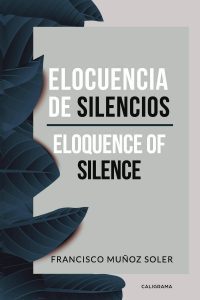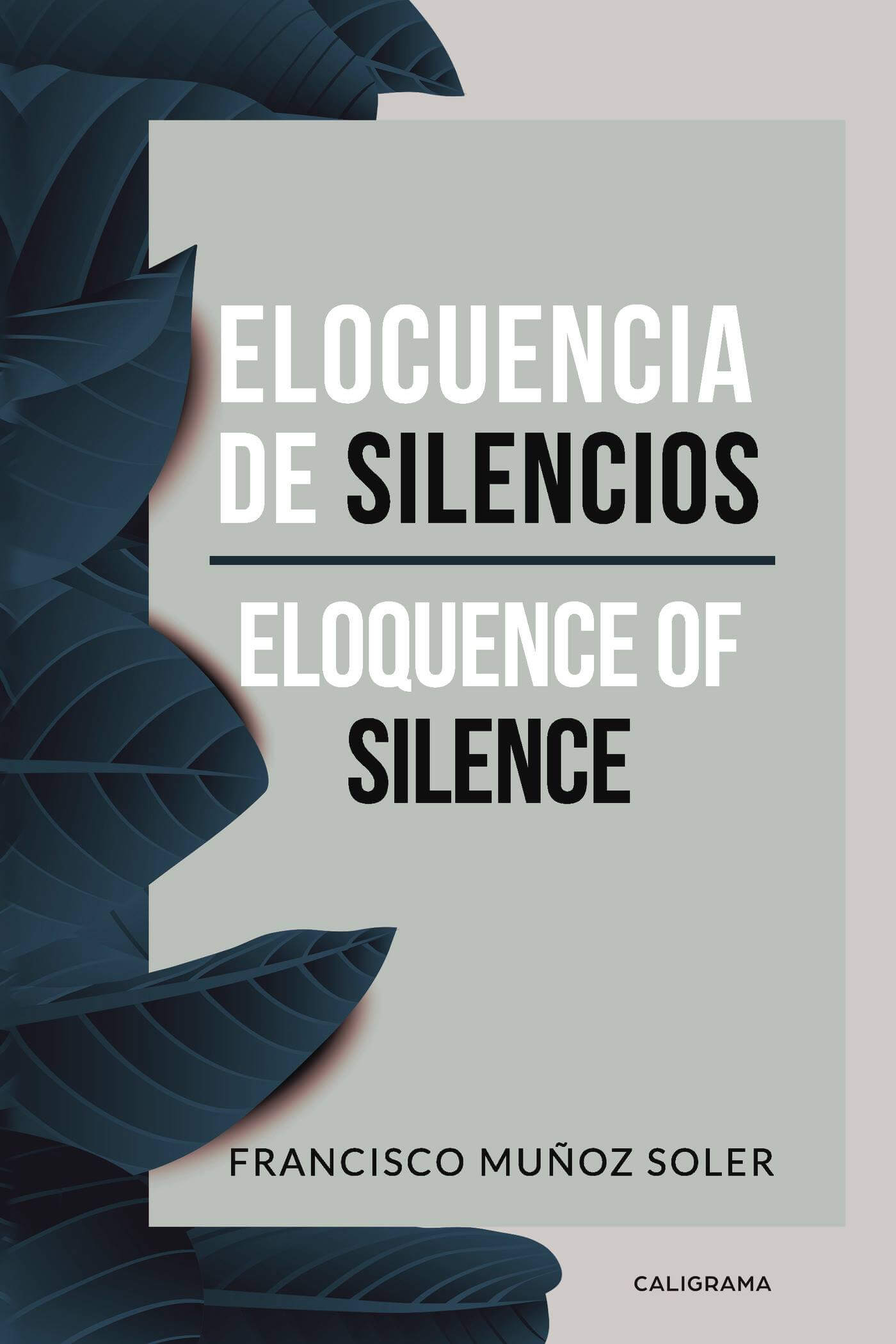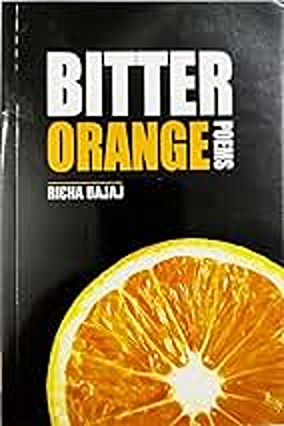Abu reviews Eloquence of Silence by Francisco Munoz Soler, a collection of fifty–nine poems, written in Spanish and translated in English. An exclusive for Different Truths.
 Francisco Munoz Soler’s Eloquence of Silence, a collection of fifty-nine poems, written in Spanish and translated in English, is basically a search for a ‘place of beauty and mercy’ where one finds ‘true togetherness’. The poet harps on brotherhood, fellow feeling, love, sacrifice, compassion, humanity. He debases hatred, inhumanity, cruelty, exploitation, sectarian violence, inequality, and lust for wealth, abuse of power and women. The poems are direct, crispy, aphoristic and realistic. It upholds the dignity of man. In one of his opening poems, “What is to be a poet and why” the poet categorically clarifies his role as a poet, ‘my stance in the world,/expressing myself through the word/ and through silence/ with beauty and humanism’. In “The Light of Roots (Roque Dalton)” the poet agrees to the sad reality that “Damned poets do not survive in battlefields, nor in the shadow of hatred’. They have to ‘pay the price of their existence, they are/ rewarded repose and silence’. Poet’s voice must be silenced. Why? Let’s hear what Don Mattera says in “The poet must die”, ‘If their lies are to survive/ The poet must die’.
Francisco Munoz Soler’s Eloquence of Silence, a collection of fifty-nine poems, written in Spanish and translated in English, is basically a search for a ‘place of beauty and mercy’ where one finds ‘true togetherness’. The poet harps on brotherhood, fellow feeling, love, sacrifice, compassion, humanity. He debases hatred, inhumanity, cruelty, exploitation, sectarian violence, inequality, and lust for wealth, abuse of power and women. The poems are direct, crispy, aphoristic and realistic. It upholds the dignity of man. In one of his opening poems, “What is to be a poet and why” the poet categorically clarifies his role as a poet, ‘my stance in the world,/expressing myself through the word/ and through silence/ with beauty and humanism’. In “The Light of Roots (Roque Dalton)” the poet agrees to the sad reality that “Damned poets do not survive in battlefields, nor in the shadow of hatred’. They have to ‘pay the price of their existence, they are/ rewarded repose and silence’. Poet’s voice must be silenced. Why? Let’s hear what Don Mattera says in “The poet must die”, ‘If their lies are to survive/ The poet must die’.
The poet harps on brotherhood, fellow feeling, love, sacrifice, compassion, humanity. He debases hatred, inhumanity, cruelty, exploitation, sectarian violence, inequality, and lust for wealth, abuse of power and women. The poems are direct, crispy, aphoristic and realistic. It upholds the dignity of man.
His heart weeps at the tragedy of the nameless, faceless, marginalised chunks of humanity. In “Clandestine Immigrants” he deftly imagines ‘Immigrants, like leftover goods/ sail towards the sky tirelessly.’ ‘They were guilty from the beginning’. “There are Tombs that in their silence” is an agonisingly suppressed cry of a tormented soul, finally relieved with ‘a river of bliss’. There are tombs that in their silence speak of the world and emit music that go beyond ‘walls, barbed wire and shackles’; there are tombs that rise ‘above cruelty and infamy,/ their river of bliss/ purified acid rains’. In “They raise their cruel voice” we find ‘meticulous agents of injustice’ who ‘raise their cruel voice/ emboldened by their profits/ and peace which grants them the acceptance of their lies’. In “City of the cross”, the poet paints a city, ‘that incarnates the submission/ of beings with no expectations, in misery that dehumanizes / all instances of life’. Silence ‘darkens dawn of deprived beings’. Indeed a postmodern, post-truth scenario awkwardly staring at us.
“The Dark Night, Pandemic Days” is the poet’s supreme grasp over the global human condition in an unparalleled way: ‘We live in times of Endor/ of global lobotomy/ecological catastrophes/Auschwitz of refugees/and slaves that are necessary.’ The poet is, however, hopeful that ‘the disaster will open new spaces/ of love and imagination/ that will shatter the lie’. “Hurricanes of awakened spirits” is in the same vein of poet’s crave for harmony, peace, love, compassion, brotherhood, shared joys as against cruelty, injustice, deceits, indignation, and inhumanity.
“Hatred Seduces” is a running commentary on contemporary socio-political global underpinning. Hatred has the ‘splendour of its arsons,’ and its votaries ‘discriminate, dehumanise, and execute’ hordes with symbols and have ‘legions to defend themselves.’
“Hatred Seduces” is a running commentary on contemporary socio-political global underpinning. Hatred has the ‘splendour of its arsons,’ and its votaries ‘discriminate, dehumanise, and execute’ hordes with symbols and have ‘legions to defend themselves.’ The poet firmly believes that ‘brotherhood and compassion should not remain in eloquent silence and/ hatred should not rewrite history’. Another poem of the same fashion “Hatred strikes them incessantly” is a bleak picture of ‘a country reduced to ashes/ where wounds germinate/ and the sun is always distant.’ In another poem, he asserts ‘sectarianism asphyxiates the skies’. “Fundamentalism” is ‘A cynicism that doesn’t allow any space for light to spread’, it is ‘a horror where lovers of death/ humiliate those who love life’. The poet is deeply concerned with current raging issues of the world. And he openly challenges the monstrous forces and gently sings for the restoration of harmony, peace and tranquillity both in private and public life. “Six thousand and six hundred people” is a bitter satire on our callousness and acceptance of massacres, ethnic cleansings and related deaths as a normal dish of dinner. Deaths are measured like ‘litres per/ square metre of rainfall’, Sunday, the stock exchange is closed’. The irony is at its best.
As in “City of the cross”, ‘From the bus, I try to capture evidence of how life is on this land’ is a realistic portrayal of the inequality, institutional injustice, authoritarianism that pervade the life of the margins, underprivileged: ‘Garbage drowns the berms, dust storms separate them from the/ thickets; between the two, there are homes where/poverty has been the owner since the beginning of time and it is/violence that governs the transit of the years/of its inhabitants’. “I travelled down brutal and bitter roads” the poet is shocked with ‘blood of virgins inking the earth’, ‘childhood is a graveyard’. It is a dying land with ‘absence of compassion’, ‘mother with tears’ ‘fields of hatred’ are the only spectacular scenes. “Before the sun embraces the city” is a shocking portrayal of ethnic strife and violence. People are leaving home and hearth and they are fleeing to a relatively safer, secured land. The portrayal of a mother with her adolescent daughter adds bitterness to the texture of the poem.
“Before the sun embraces the city” is a shocking portrayal of ethnic strife and violence. People are leaving home and hearth and they are fleeing to a relatively safer, secured land. The portrayal of a mother with her adolescent daughter adds bitterness to the texture of the poem.
“A dehumanised silence germinates” forgotten territories for countless, nameless graves of people. “In Dogmatic Regimes” the poet with his characteristic way utters bitter truths, ‘In dogmatic regimes/ self-criticism is a suicide/ because there will always be enlightened men –traitor, enemy, revisionist, ideological detachment’.
“Nothing can be worse than this” is a vehement resistance against abuse of women. An abused girl is ‘Apparently still alive, yet it’s autumn in spring/ a fallen leaf’; ‘devoid of self-esteem, she reeks of fear/ unable to relish her days’. In “Perpetual Fear” the poet affirms that we should be afraid of ‘fears that control and divide us’. How true and well-meaning is his poetic utterance!
Some poems are, however, concerned with god’s wrath and his biased ways. “The Wife of Lot” defends her dream by disobeying the path of submission and inviting the wrath of God. She chooses this challenging path and she believes neither God nor Death can snatch it away from her.
Some poems are, however, concerned with god’s wrath and his biased ways. “The Wife of Lot” defends her dream by disobeying the path of submission and inviting  the wrath of God. She chooses this challenging path and she believes neither God nor Death can snatch it away from her. “Awaiting the kingdom of heavens/ not all of us are equal, I tell him/ and he responds, not even in the eyes of god’. The poet pertinently raises his reasoned point, ‘If we are the children of the same God, why in wars the same ones fall/ the children of the poor’. Obviously there is no answer.
the wrath of God. She chooses this challenging path and she believes neither God nor Death can snatch it away from her. “Awaiting the kingdom of heavens/ not all of us are equal, I tell him/ and he responds, not even in the eyes of god’. The poet pertinently raises his reasoned point, ‘If we are the children of the same God, why in wars the same ones fall/ the children of the poor’. Obviously there is no answer.
A few poems are also intimate, private, togetherness and ‘unforgettable love’. “This summer your absence germinates” a void in poet’s life. His inner space is corrosive, unconditional love, elemental harmony he misses and pines for the loss. “At home, I notice on my skin” the poet languishes in self-induced pathos, ‘I used to be enveloped in caresses/ while Julio played in the sand/ or dived in the water’, ‘your absence has lasted three summers/ and the pallor of my skin is so intense/ that it hurts to look at it’.” In an intimate song, I go through” the poet recollects ‘only our silent love/ is tethered in sunset/with cords of tenderness’. “Still I feel the same intensity” is a poem where he pines for ‘her inherent seamless love/ and in the days that will not be ours’. And the lovely one “I Remember the Young people of my Adolescence” where the poet at his old age wistfully recollects ‘ once they have original hair’, ‘now with peppered hair/ their faces scarred with wrinkles,/perhaps walking with their grandchildren’. Perhaps the poet keeps these lesser poems to the bold and challenging ones, discussed earlier, to add variety to this wonderful collection.
A few poems are also intimate, private, togetherness and ‘unforgettable love’. “This summer your absence germinates” a void in poet’s life. His inner space is corrosive, unconditional love, elemental harmony he misses and pines for the loss.
I conclude with a fine poem, “There cannot exist a country” where the poet’s worth is to be measured from these eternal lines ‘if it [a country] does not cultivate compassion/ and love for its neighbour/ ought to germinate tenderness/ in its grail of humanity/ Or it will be dead’. A land bereft of mutual love and compassion, brotherhood, is a parched land where no clouds will bring rain, no saplings will grow, no birds sing, no mothers breast her babe.
Photo sourced by the author





 By
By
 By
By
 By
By
 By
By
What a powerful review! Will check this out. It would be really helpful if Amazon or other means of online purchase links are made available with each book review.